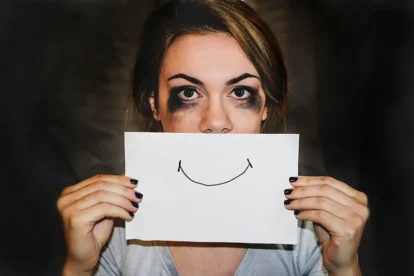OCD and Alcohol

Obsessive-compulsive disorder (OCD) often co-occurs with alcohol use disorder. One may trigger the other, for instance when using alcohol as a way to cope with OCD symptoms or when alcohol triggers OCD in someone already at risk for it. Getting a diagnosis for both conditions is important so that both can be addressed in treatment. This is the only way to effectively manage both and to prevent recurrences of OCD symptoms and drinking relapses.
If you struggle with alcohol and drinking, but you also have obsessive-compulsive disorder, it may be tempting to work on one condition at a time. It may seem reasonable to get drinking under control first before targeting treatments for OCD. However, the best, most effective way to learn how to manage OCD symptoms and problem drinking is to treat both conditions at the same time. They are related in complex ways, and treatment must address this. Without co-occurring treatment, you run a serious risk of experiencing destructive, chronic relapses.
OCD is a chronic mental illness related to anxiety disorders. It causes unwanted, persistent thoughts and ideas, which are referred to as obsessions. The obsessions then trigger compulsive behaviors, actions repeated over and over in response to the obsessive thoughts. An example of how OCD may manifest is in obsessive thoughts and fears about germs that trigger compulsive hand washing.
The cycle of obsessions and compulsions are severe enough with OCD to cause significant impairment. The thoughts and behaviors disrupt everyday life and cause distress. Approximately 1.2 percent of Americans have OCD, and the average age at which symptoms first appear is 19. Treatment for OCD includes behavioral and exposure therapies. Antidepressant medications may help as well.
Alcoholism, or alcohol use disorder, is a behavioral and mental health disorder. A pattern of drinking that causes problems and is out of control may be considered an alcohol use disorder. Diagnosis requires meeting just two or three of 11 criteria. The more criteria met, the more severe the disorder is.
The criteria for alcohol use disorder include being unable to control drinking, craving alcohol, continuing to drink despite relationship and health problems, limiting activities and responsibilities to drink more, tolerance, and withdrawal symptoms. Alcoholism can be treated with therapy, medications, and group support.
OCD and Alcohol Use Disorder Often Co-Occur
Co-occurring disorders are mental illnesses or substance use disorders that you have at the same time. They are often related, and one may come first and trigger the other, or they can be related because of similar risk factors.
If you have OCD and problematic drinking, you are not alone. Co-occurring disorders are common. At least 25 percent of people seeking treatment for OCD also have a substance use disorder.
Which Comes First? The Complex Relationship Between OCD and Drinking
Mental illnesses and substance use disorders commonly co-occur, which suggests a link that may be related to biological or psychological factors, life experiences, or both. It may never be possible to untangle the complicated knot of these related conditions, but it is important to understand how they may be connected.
There are likely to be unique factors at play in different people, but there are some common threads. For instance, in a study of people with OCD and substance use disorder, researchers found that 70 percent had symptoms of OCD before substance abuse. This indicates that in many cases it is the anxiety disorder that triggers drinking or drug use.
This is called self-medication. If you are struggling with OCD, the thoughts you can’t shake and the stress of trying to complete compulsive behaviors, you may turn to alcohol to soothe your distress. It is an unhealthy but typical reaction to untreated or poorly managed mental illness. Alcohol feels good in the moment, but it doesn’t address the underlying issue. And, over time this unhealthy pattern can lead to an alcohol use disorder.
On the other hand, if you develop a drinking problem, it may trigger OCD symptoms. This connection is a little harder to explain or prove. It may be that you already had risk factors for OCD, such as a family history of the condition, and the stress of drinking or its actions in the brain caused the disorder to develop. Alcohol use disorder can lead to additional stress, and this is another risk factor for OCD.
The Importance of a Dual Diagnosis
It is difficult, if not impossible, to pin down the reasons that a person develops both OCD and an alcohol use disorder. Each person in this situation likely has several factors at play that contributed to the two conditions. But what is absolutely known is that it is essential for anyone with any mental or behavioral health disorders be thoroughly screened and evaluated and given a dual diagnosis if appropriate.
A dual diagnosis is simply a complete diagnosis. It means that you have two or more conditions, even if they seem similar or have overlapping conditions. The only way to be able to manage mental illnesses and substance use disorders effectively is with professional treatment, and the only way to get treatment is to have a diagnosis.
Each condition requires a particular type of treatment. You must know what your mental health issues are if you are to get the right treatment. Getting the most appropriate and effective treatments after a dual diagnosis has a ripple effect. It will lead to better functioning in everyday life, a greater quality of life, and a reduced risk of complications, like suicide.
Begin Your Recovery Journey Today
866-922-1350Treating Co-Occurring Disorders
Simply getting treatment for alcohol use disorder or OCD is not adequate. For the best outcomes, you need to have treatment that addresses both issues at the same time. This is because of the complexity of the dual diagnosis and that the conditions overlap and contribute one to the other. In other words, OCD and alcohol use disorder are intertwined, and they cannot be managed unless treatment works to pick them apart from each other.
Effective Treatment Reduces Chronic Relapse
The sign of effective residential treatment and rehab for alcoholism and OCD is the prevention of relapse. Good treatment for OCD will help you learn how to manage symptoms, how to control obsessions, and how to use healthier alternatives to compulsions in order to cope. The best treatment for drinking reduces the risk that you will relapse and take another drink.
Chronic relapse, experiencing symptoms or drinking again over and over, is dangerous and risky. It compromises your overall well-being and quality of life and also your physical and mental health. The most important reason to target both conditions in one treatment program is that it reduces the risk of relapse. Several aspects of effective treatment can do this:
- Learning how the two conditions are related and how one may trigger the other
- Identifying and learning how to avoid triggers for compulsions and drinking
- Practicing healthy coping mechanisms for the stresses of OCD and alcohol cravings
- Getting a treatment plan based on your individual needs
- Working with a variety of mental health professionals with a range of specialties and expertise
- Spending at least 90 days in treatment
- Engaging in focused, intensive treatment in a residential facility
- Getting support from family during treatment
The relationship between OCD and alcohol is complicated but very real. If you have one, you are at risk for the other. And, if you have both you need to be treated for both. The two conditions impact each other, so avoiding relapse and learning to live well with them depends on engaged, individualized, co-occurring treatment.






